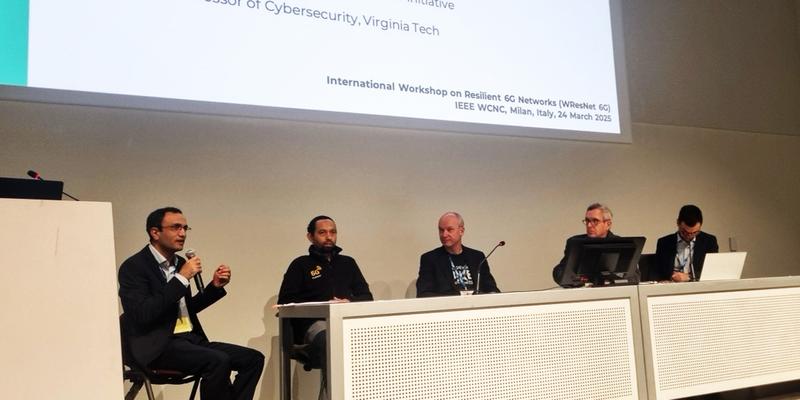Shaping the Future of Wireless Communications
emergenCITY Researchers Vahid Jamali und Ladan Khaloopour Lead Workshop on Resilient 6G Networks at IEEE WCNC25 in Mailand
emergenCITY Researchers Vahid Jamali und Ladan Khaloopour Lead Workshop on Resilient 6G Networks at IEEE WCNC25 in Mailand

We’ve come a long way in wireless communications, from simple phone calls and short messages to smartphones that let us stream, navigate, and manage our lives on the go. But the future holds even more promise. With 6G on the horizon, we’re looking at a whole new era of transformative technologies, from extended reality (XR) and digital twins to autonomous systems and networked robotics. What sets 6G apart is not just performance but it’s resilience. As our digital applications become more critical and complex, networks must be designed to be not only fast, but also resilient to known and unknown disruptions.

To this end, emergenCITY researchers Vahid Jamali, professor in the Resilient Communication Systems lab at TU Darmstadt, and Ladan Khaloopour, research assistant in the same department contributed to the organization of the first International Workshop on Resilient 6G Networks at IEEE Wireless Communications and Networking Conference (WCNC) 2025 in Milan on march 24, 2025 one of the flagship events of the IEEE (Institute of Electrical and Electronics Engineers) Communications Society. The workshop featured an exciting program including a keynote, an invited talk, two technical sessions, and a panel discussion. Experts from academia and industry came together to discuss how to embed resilience at the core of tomorrow’s 6G networks.
Resilience will be a cornerstone of future wireless systems, and emergenCITY is leading the way.
Vahid Jamali, emergenCITY PI and Head of the Resilient Communication Systems lab at TU Darmstadt.
Workshop on Resilient 6G Networks at WCNC
Resilient Communication Systems Lab